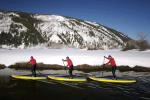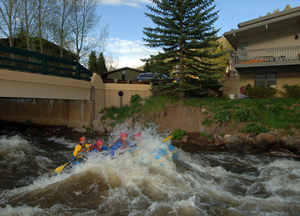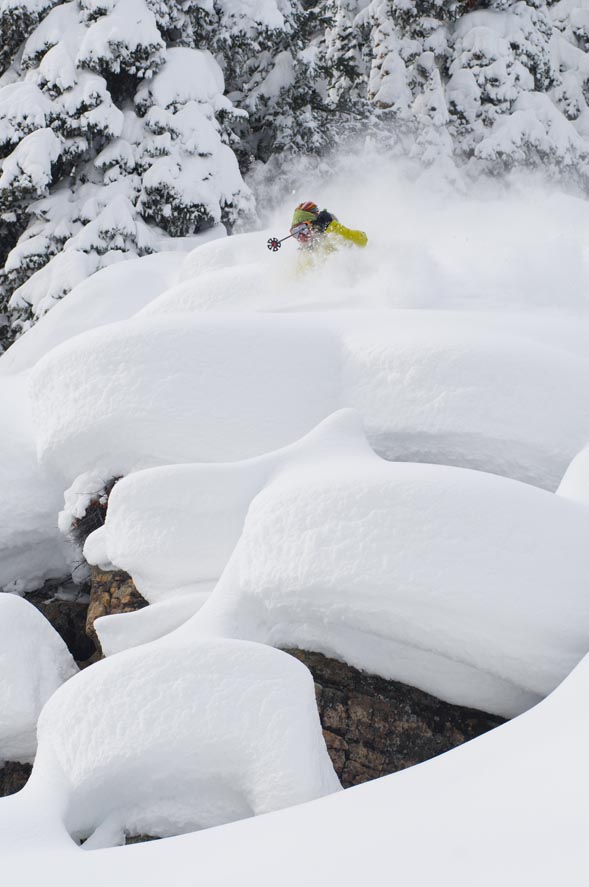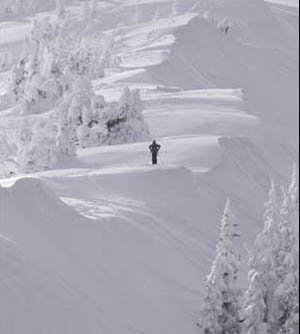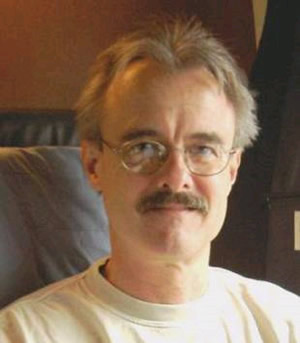
Courtesy of sciencebasedsolutions.net
- Coming soon to a rest area near you: Yellowcake uranium, a low-risk form of hazmat
- Garfield County continues to debate resolution on DeGette's FRAC Act
- Can uranium mining, tourism and outdoor recreation coexist in Montrose County?
- Telluride residents rally against proposed uranium mill in Montrose County
- Heavy hitters Udall, Denver Water, USFS get behind Vail biomass power plant concept
- Natural gas drilling to keep moving closer to nuclear blast site near Rulison
- Vail Valley Medical CEO Cassin resigns
- Polar exploration company Quark Expeditions signs on as major sponsor of Vail Valley Foundation
- Shaw Cancer Center in Edwards unveils new PET/CT scanner
- All Real Biz Articles
July 12, 2009 — Dr. Geoffrey Thyne is no Ward Churchill. He’s a geologist and an academic with three decades of field work and experience as a research scientist in the oil and gas industry, including the last 13 years at Colorado School of Mines in Golden.
Thyne said in an interview that he was caught completely off-guard in late May when his bosses at the 135-year-old school threatened to fire him for comments he made to reporters on hydraulic fracturing — an increasingly controversial but equally common practice of injecting natural gas wells with high-pressure water, sand and chemicals to force open rock formations and free up gas.
U.S. Rep. Diana DeGette, a Denver Democrat, is co-sponsoring legislation that would remove a Safe Drinking Water Act exemption for the process, also known as “fracking,” that was put in place by the Bush administration in 2005. Oil and gas industry trade groups have mounted a massive — and expensive — campaign to fight DeGette’s bill and maintain the exemption, which no other extractive industry enjoys.
Marsha Williams, director of integrated marketing and communications at the School of Mines, disputed Thyne’s allegations and clarified his role with the school. Here’s her entire statement:
“I want you to know that no one in the Mines administration recalls having anything but cordial conversations with Dr. Thyne this spring. When Dr. Thyne was quoted during that time by the media, the school received inquiries about Dr. Thyne’s association with Mines.
“As a result, Mines officials phoned and e-mailed Dr. Thyne to inform him of the inquiries, and also to remind him of the university policy that people must be clear in public communications that the opinions they express are personal and do not represent institution positions — one way or another — on issues being discussed.
“Also, as a matter of clarification, Dr. Thyne left employment at Mines in August 2006 due to employment at the University of Wyoming. He has remained in a very limited role on a non-paid basis (in an advisory capacity with graduate students) since then, and that contract ends at the end of August 2009.”
Thyne said he was threatened with termination as a research associate professor at Mines, a position he still holds through the end of the summer, because of pressure put on the state school by powerful players in the oil and gas industry who were upset with his position that federal regulation of hydraulic fracturing may ultimately be necessary if oil companies don’t find other solutions.
“I was shocked,” Thyne said. “It’s fine to call up and complain. It’s fine to call up and say, ‘Hey, we want an explanation of why you said this.’ I think that’s totally reasonable. What I found so interesting is no one’s ever called me, except my bosses, and they just come in and go, ‘Your ass is going to get fired if we can find a way to do it.’”
As it turns out, a position came open as a senior research scientist at the Enhanced Oil Recovery Institute at the University of Wyoming, and so Thyne is transitioning there by the end of the summer. But he clearly was rattled with the fallout from comments he made to both National Public Radio and Denver’s KUSA Channel 9 TV in late May.
“There’s some really powerful people that are making a lot of money off of this, and when they see any kind of opposition, their response is to pick up the phone and say, ‘Fire this guy,’” Thyne said. “I’m first surprised that a state institution can be influenced that way …”
Colorado School of Mines public relations officials did not immediately return a call requesting comment. A spokeswoman later provided an e-mail response (see sidebar).
Thyne contends there needs to be much more rigorous study of fracking to determine the extent to which it can contaminate groundwater supplies. Industry money currently being poured into the aggressive and highly defensive campaign to defeat DeGette’s legislation would be better spent building a credible scientific case for why the exemption was necessary in the first place, he adds.
Industry officials claim state regulation of the practice is more than adequate and that the chemicals used in fracking need to be kept secret for competitive purposes. They also argue that in 60 years of fracking there has never been a case directly linking it to the contamination of drinking water wells because so many precautions are taken.
But Thyne is currently being employed as an independent consultant by Garfield County to study a case near Silt in which a property owner claims fracking contributed to an ongoing gas seep in Divide Creek. Thyne’s report on those claims may be discussed at a meeting next week of the Colorado Oil and Gas Conservation Commission, which dismissed the claims.
Working for the consulting company he founded, Science Based Solutions, Thyne has conducted other studies for Garfield County that showed elevated levels of methane in groundwater since the most recent drilling boom began in 2000.
Thyne says the West Divide Creek seep in 2004 resulted from a bad cement job by EnCana Oil and Gas, which was fined a record amount of more than $370,000 by the COGCC, and had nothing to do with fracking.
But at the same time he was asked as a professor at Mines to conduct an unfunded review of a 2004 EPA study of fracking for the Oil and Gas Accountability Project. Thyne was not as convinced as the EPA that the fracking exemption is justified by current data, and he wants to see far more study on the topic because it has taken off so much in the last decade.
“You want to know those things because now that we’re employing this technology broadly we’re hearing about problems,” Thyne said. “Not many, but a few. And if we’re going to employ it even more broadly, and particularly into residential areas, it’s just the prudent thing to do is be sure.”
![]() Comment on "School of Mines professor says gas industry tried to get him fired for controversial comments" using the form below
Comment on "School of Mines professor says gas industry tried to get him fired for controversial comments" using the form below





